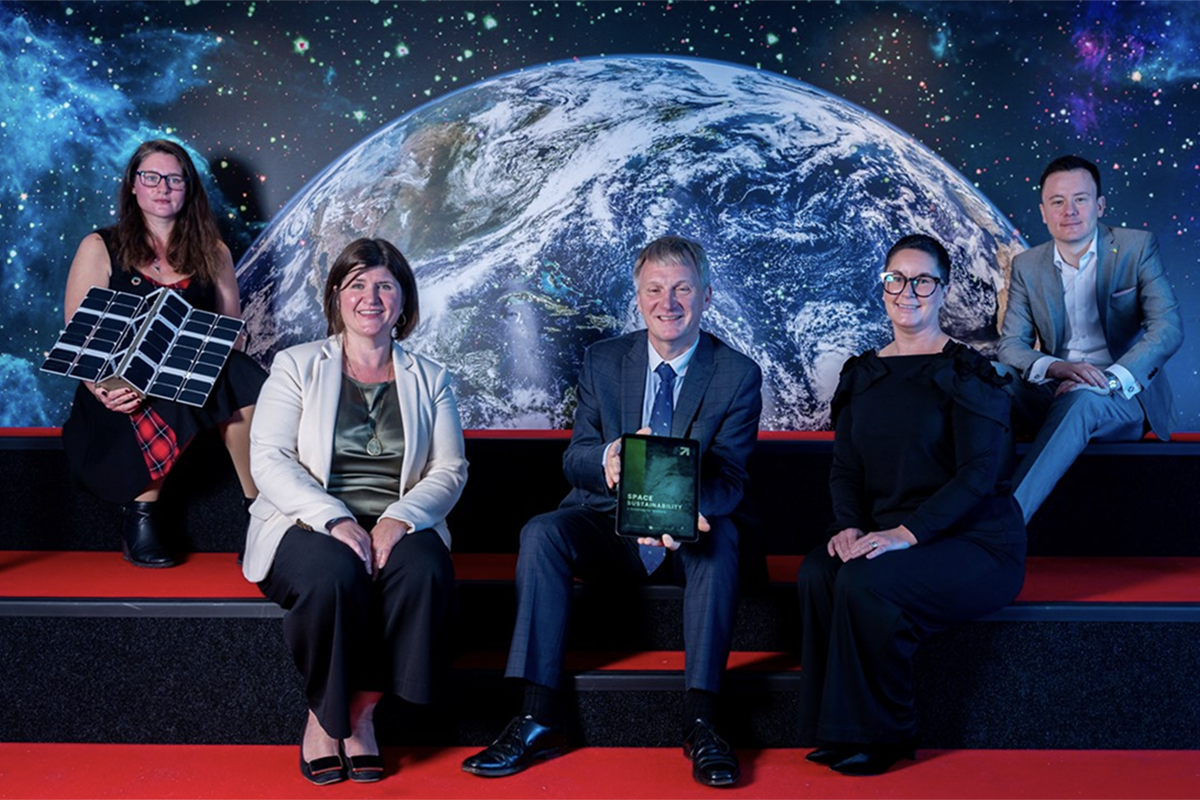Scotland reveals ambitious plans to reduce the environmental impact of its booming space industry.
Scotland’s space sector is committed to reducing its impact on the environment, both on Earth and beyond.
A new plan has been devised to set out the steps needed to achieve the long term goals of Scottish space missions. These include being space debris neutral, creating zero emissions from on-the-ground activities, and for Scotland to gain global recognition as a leader in sustainable space.
Extensive research into other sustainability initiatives, and consultation with the space industry, was used to come up with a roadmap to address areas such as the environmental impacts of building, fuelling, and launching satellites - as well as the importance of promoting satellite data for environmental monitoring.
Kristina Tamane, Space Sector Business Development Lead at University of Edinburgh and Environmental Task Force Co-Chair, said: “The work behind this roadmap is unique because it is centred in action and leading the way globally in terms of sustainability of the whole space sector.
“Key colleagues across the UK, enabled by the Environmental Task Force, will proactively and consistently build a space sector that is sustainability focussed by design. This is a truly historic document which I am positive will lead to an environmentally conscious space sector development, led by Scotland.”
Developed in collaboration with Space Scotland’s Environmental Task Force and funded by Scottish Enterprise, the roadmap has been produced by space strategy firm AstroAgency in partnership with Glasgow-based Optimat.
“It’s almost a year since Glasgow hosted COP26, where world leaders gathered to address climate change and the global action needed. This roadmap represents another historic moment in our journey towards net zero and is further proof of Scotland’s commitment to take positive environmental action,” said Jane Martin, managing director at Scottish Enterprise, said:
“By working together industry, academia and the public sector can find solutions to the worldwide challenge of making space more sustainable, helping to protect the Earth and space for future generations.”
As one of the early actions identified in the roadmap, Scottish Enterprise, together with partners Scottish Government and The Data Lab, has launched a £300,000 innovation challenge to fund innovative solutions using space data to aid Scotland’s transition to net zero. Successful applications will secure funding of between £20,000 and £30,000 with the fund closing for applications on 26 September 2022.
Dr Paul Bate, Chief Executive of the UK Space Agency, said: “Scotland is a vital part of the UK’s growing space sector, which employs 47,000 people and generates an annual income of £16.5 billion.
“We’re developing new missions and capabilities to improve how we track objects in orbit and accelerate technologies such as active debris removal, while setting new standards and working closely with international partners to keep space open for future generations.”
The Space sector has been identified by the Scottish Government as a key opportunity for future economic growth with a potential to create 20,000 jobs and secure a £4 billion share of the global space market.
“Scotland’s space industry has enormous growth potential,” said Ivan McKee, Business Minister.
“The Scottish Government recognises the key role of space in the global fight against climate change. The Scottish space sector shares this collective responsibility and is already innovating through the use of greener fuels, lightweight materials, smart design and reusability. The Sustainability Roadmap is the next step in helping the sector reach net zero by 2045 and in setting an example for other nations.”




